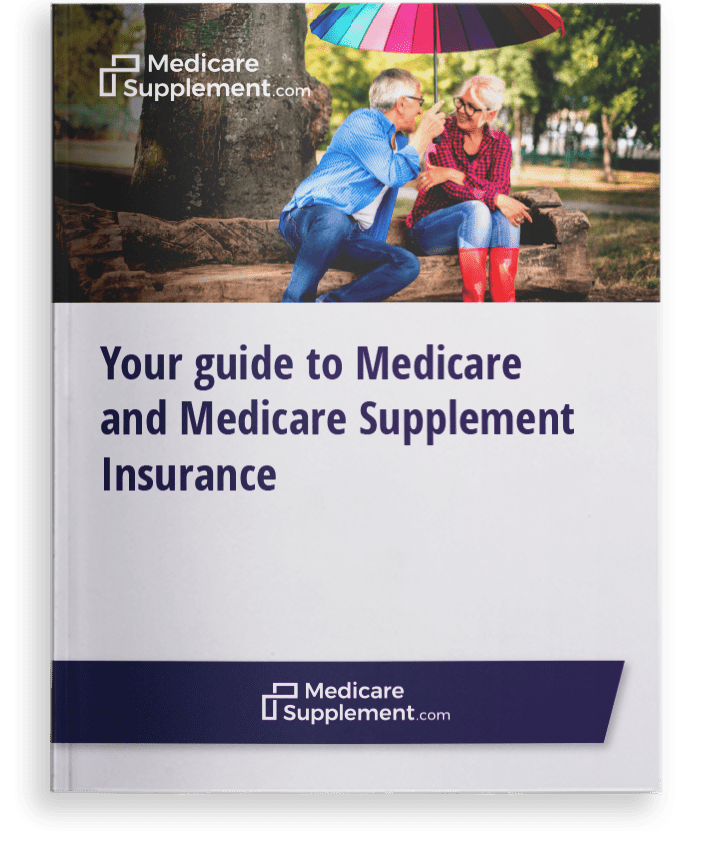Coverage
Does Medicare Cover Urgent Care?
Medicare Part B will typically help cover your urgent care visits. Medicare Supplement plans can help cover some out-of-pocket costs you'll have to pay.
- Medicare (Part B) typically covers most urgent care situations
- There are some out-of-pocket costs that you may have to pay, however.
- While Medicare Part B covers urgent care and emergency room care, urgent care is typically cheaper and has a shorter waiting time.
Learn more about the qualifications for Medicare urgent care coverage and how to get help covering some of the additional costs.
Compare Medigap plans in your area.
Find a planOr call now to speak with a licensed insurance agent:
1-800-995-4219

Medicare Urgent Care Coverage
Urgent care typically falls under the Medicare coverage category of emergency department services. Medicare Part B covers all emergency department services within the U.S., which includes any service or care provided when you have an injury, sudden illness or condition that worsens very quickly.
Urgent Care Locations vs. Emergency Room Care
Both urgent and emergency room care are covered by Medicare Part B as outpatient care. However, there are several advantages to receiving care at an urgent care center rather than a hospital ER. A visit to the urgent care clinic can often mean:
- Lower costs
- Shorter wait time
Urgent care centers are typically staffed by physicians, physician's assistants and nurses, just like any other doctor's office or ER — the difference is that they aren't equipped to treat life-threatening injuries or illnesses. As long as your injury or illness is non life-threatening, a visit to the urgent care clinic may save you money and time.
Medicare Part A does not cover urgent care clinic visits, but it will help cover some of the costs of inpatient hospital care, lab tests, surgeries and some other costs.
Compare Medigap plans in your area.
Find a planOr call now to speak with a licensed insurance agent:
1-800-995-4219
How Does Medicare Pay for Urgent Care Location Visits?
As long as the urgent care center you go to participates in Medicare, your Medicare insurance will typically cover 80 percent of the Medicare-approved cost for services, and you'll pay the remaining 20 percent coinsurance after you have met your Medicare Part B deductible (which is $240 per year in 2024).
Medicare Advantage and Urgent Care Coverage
Another way to receive Medicare urgent care coverage is through a Medicare Advantage (Medicare Part C) plan. These plans are sold by private insurers and are required by law to provide all of the same basic benefits as Medicare Part A and Part B.
However, just because an urgent care center accepts Medicare doesn’t mean they will accept all Medicare Advantage plans. Much like more traditional health insurance plans, many Medicare Advantage plans feature networks of doctors, hospitals, pharmacies, medical equipment providers and other types of health care providers including urgent care locations.
Before visiting an urgent care location, check to see that the facility is included in your Medicare Advantage plan network. If they are not a network participant, the visit is not likely to be covered and you may be left responsible paying out of pocket for your care.
While the Medicare Part B deductible and coinsurance amounts are standardized, the costs associated with Medicare Advantage can differ from one particular plan to another. So the cost of your urgent care visit will depend on the terms of your specific plan.
Medicare Supplement and Urgent Care Coverage
Some of the costs of an urgent care visit that's covered by Medicare can be paid for by a Medicare Supplement Insurance (or Medigap) plan. Medigap plans are sold by private insurance companies and provide coverage for Original Medicare deductibles, copayments, coinsurance and other out-of-pocket requirements.
Each type of Medigap plan provides at least some coverage for Part B coinsurance, and eight of the 10 Medigap plans available that are available in most states cover Part B coinsurance costs in full.
Some Medigap plans can also pay for Part B excess charges, which may result when visiting an urgent care clinic that accepts Medicare patients but does not accept the Medicare-approved amount as full payment. These providers are allowed to charge up to 15% more than the Medicare-approved amount.
Medicare Supplement Insurance can help cover your out-of-pocket urgent care costs.
Find a plan
Get a Free Medicare Guide!
Enter your email address and get a free guide to Medicare and Medicare Supplement Insurance, as well as important Medicare news and tips. We promise to never send you spam – just helpful content!
By clicking "Get your guide" you are agreeing to receive emails from MedicareSupplement.com.

